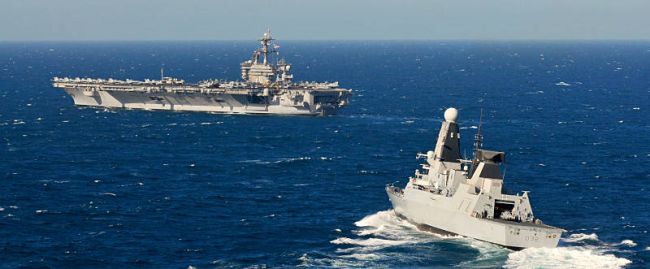The Council discussed the situation in Somalia, focusing on piracy and the issue of the prosecution of suspected pirates captured by ships taking part in Operation EU NAVFOR Atalanta. The High Representative briefed ministers on ongoing contacts with the Kenyan authorities. She indicated that she would be visiting the region shortly, beginning with Kenya.
The EU has concluded transfer agreements with Kenya and the Seychelles. Agreements with other countries in the region are under discussion. The EU is committed to a regional approach, based on regional ownership and EU support for the countries in the region in their efforts to ensure the prosecution and detention of suspected pirates.
EUNAVFOR Somalia — Operation ATALANTA was launched in December 2008 to contribute to the protection of World Food Programme vessels delivering food aid to displaced persons in Somalia, to the protection of vulnerable vessels sailing in the Gulf of Aden and off the coast of Somalia and to the deterrence, prevention and repression of acts of piracy and armed robbery. As part of its efforts to support stability and security in Somalia, the EU just launched a training mission (EUTM) in Uganda to train Somali troops.
NUCLEAR NON-PROLIFERATION
The Council had an exchange of views on nuclear issues, against the background of increased global attention as illustrated by the new START treaty, the Washington Nuclear Security Summit in April and the Nuclear Non-Proliferation Treaty (NPT) review conference that is currently under way in New York (3–28 May). The High Representative, who participated in the opening session of the NPT Review Conference, briefed the Council on the conference and on meetings held in the margins.
In 2003, EU heads of State and government adopted an EU Strategy against the proliferation of weapons of mass destruction. The EU provides significant political and financial support to international
IRAN
The Council discussed the situation in Iran, notably on human rights and the Iranian nuclear programme and Iran’s failure to meet its international obligations under UN Security Council and IAEA resolutions. The High Representative reported on her discussions on this issue with various foreign ministers during her visit to the United Nations in New York. Ministers reaffirmed the EU’s dual-track approach. The EU supports the UN Security Council process on new restrictive measures against Iran. It will also continue to keep the door open for negotiations if Iran shows real willingness to negotiate constructively over its nuclear programme.
EU-RUSSIA SUMMIT
The Council discussed preparations for the 25th EU-Russia summit to be held in Rostov-on-Don on 31 May and 1 June. Ministers focused in particular on priorities for the Partnership for Modernisation, proposed at the Stockholm Summit in November. In this respect the EU will advocate a broad approach encompassing the rule of law and citizens’ rights. The Council also discussed the issue of visas, on which the EU is committed to the shared long-term objective of visa-free travel following a step-by-step approach focusing on substance. The global economic crisis, climate change and energy issues, the question of Russia’s accession to the World Trade Organisation (WTO), as well as regional and international issues will also be addressed at the summit.
EU RELATIONS WITH STRATEGIC PARTNERS
Over lunch, ministers continued the discussion they had started at their informal meeting in March and at the Foreign Affairs Council on 26 April concerning the EU’s relations with its strategic partners, this time focusing in particular on China and Japan.

 von
von 